- Home
- Heather Graham
Captive Page 42
Captive Read online
Page 42
Out of the hammock the Indians responded. They fired their weapons in return.
They let out their terrible war cry. Yohoehee … yo-hoehee …
The sound of it was enough to make skin crawl. “Get out of the line of fire, Racoon!” James commanded the boy.
“I’m not afraid—”
“Then live to be free!” James commanded him. “Go!”
The young man started slipping through the saw grass. James saw the first ranks of the soldiers draw in, fall back, regroup.
Another regiment was brought forward. Traversing the swamp. Firing, stopping, reloading, firing, stopping …
Falling, bleeding, dying …
James fell back, watching the action, hurrying for his horse. He mounted, moving more quickly as he realized that another regiment was being sent in to attack on the right wing.
Watching the way that the soldiers moved around, James realized that there would be hand-to-hand combat all around the hammock.
Even in the high ground where he had left Teela.
Teela heard the first gunfire and nearly leapt down from the oak. James had told her to stay. He knew how to fight. He knew how not to die. She had to obey his command in this.
Yet the fire came closer, closer. She heard men shouting, first in Muskogee. She had learned some words but not enough to begin to understand what was being said. And the voices were excited, fast …
Screams. There were screams as bullets found their marks. There seemed to be quiet for a while, and then…
More fire. And the awful, hair-raising shrieks of the warriors as they cried out before an attack.
Near her, she suddenly heard English.
“Careful now, men, we’ve been cut off. To the high ground, use the trees for cover. Reload and prepare to fire at my command!”
To her amazement, she knew the voice, knew it well. She knew the tall, harried, muddied, dirtied, even bloodied young man who suddenly led a dozen men into the copse directly beneath her.
John Harrington.
His men quickly scampered into position, pausing to load their breech-loading weapons with uncanny speed for the action required, teeth ripping into powder bags, the slide of metal against metal as they tamped down their shot.
Suddenly, the Seminole war cry was let out again. Teela nearly froze in her tree, then gasped back a scream of horror as naked, painted Indians came flying toward the hammock.
She heard a roar of fire; three Indians went down. Another roar of fire …
Three Indians behind the first to arrive had awaited their chance to fire.
A boy below Teela shrieked, struck in the shoulder. John swore vehemently, hit in the arm. Another soldier fell without a word or a whimper.
The Indians were all over the copse. The combat was hand-to-hand, the soldiers fighting desperately with bayonets, swords, knives … even using their rifle butts as clubs. The Indians kept coming.
The soldiers fought bravely. Indians and white men fell together.
John stood before the oak, shouting a command to his men. “Retreat, behind me, eastward toward the main body of troops. Men, march!” he roared.
Those still standing did as he commanded. Two of the remaining Indians chased them.
Two of them stared at John, smiling slowly. John, with only one good arm, raised his rifle high like a club. He faced certain death.
He began to waver, then he fell.
The Indians let out one of their hideous, bone-chilling cries, and started for him.
Teela didn’t think, she reacted, slipping from the tree in desperate horror. She threw herself over John’s fallen body, rising to meet the startled eyes of the two warriors, men she’d never seen before. Terror filled her, and she wondered at her own reckless action, for it seemed that not only would they finish off John, but they would kill and scalp her as well.
“No!” she cried out, leaping to her feet, warily keeping her place in front of Harrington’s fallen body.
John began to come to, struggling up. “Teela! Teela, for the love of God, the savages will kill you! How can you be here? I must be dead already.”
“You’re not dead! Shush!”
She lifted from her chest the amulet James had given her, showing it to them. To her amazement, they paused. Then one came forward, fingering the silver crescent. She held her breath in terror as they spoke to each other. Yet when one voice grew loud and she recoiled, there was a sudden thunder upon the ground.
James burst into the clearing on his horse, leaping from it, surging forward, his knife aimed at the chests of the men who would accost her. He shouted something in his Muskogee language, fierce, commanding. He moved the knife, showing the men they must leave.
His words were so harsh! Yet she felt him shaking as he held her, drew her back, forced her behind him. John staggered to his feet. “James, my friend, get Teela out of here—”
One of the Indians lunged at James. He shoved Teela hard back to John, ducking the blow that was coming his way. He slammed the Indian in the gut, then lifted him over his head, throwing him against the tree. The man crashed to the ground, either dead or unconscious. The second Indian let out a cry and came flying at James. He braced for him, half stepping aside and letting the man’s own impetus bring him down hard to the earth. A fierce knife battle followed with the two of them rolling. Teela grabbed up John’s rifle, shaking as she loaded it, then discovered she was unable to take aim at the moving, confusing target.
But then the battle suddenly ceased with an awful sound. The warrior let out a howl, and Teela realized that James had broken the man’s arm to force him to relinquish his knife. James leapt up, shouting at the warrior as he dragged him back to his feet, and let him go. After a moment of stunned disbelief, the wounded brave turned, disappearing into the brush.
“You saved my life, both of you,” John whispered, falling against the oak. From there he fell to the ground again, unconscious, almost on top of the fallen Indian.
“You left the tree!” James roared at Teela.
“I had to, James! They would have killed John.”
James fell to his knees beside his white friend. Teela came down beside him. “He was wounded in the arm, then he passed out. He’s lost a terrible amount of blood.”
“Let me rip up your hem …”
“I’ve still some sulfur left if you can clear the wound and we can see the damage.”
James had the strength to rip John’s uniform and clear the arm. Teela tenderly ascertained that the bone hadn’t been shattered or chipped, and between them they fixed a tourniquet to stanch the flow of blood.
“What did you say to them?” Teela demanded. “How did you get them to leave?”
“I told them that the soldiers were coming.”
“How brilliant.”
“How true.”
Teela leapt up, staring from him to John. “Oh, God, what do we do? We can’t just leave him here. What if they do go on by him? What if they don’t find him? He’ll die without immediate care!”
“Yes, he’ll die.”
“But … but we’ve got to go …”
“We’re not going,” he said firmly.
“What?” Teela cried with incredulous alarm. “Oh, you are a madman! We have to figure out something else. You can’t be taken. We must go, we must go—”
A madman? He might be one, James knew, but he had suddenly—and very determinedly—made his decision.
“No, we’re not leaving. I’m sorry, my love. We both know that we cannot leave John to die. And there is more.”
“What more?” she whispered.
“I’m hurting you, Teela. I’m hurting our unborn child.”
“But—”
“I cannot do so anymore. It isn’t that I wish to make my home anywhere else. I just don’t wish to run anymore. Once I felt that running was my only chance. Even with Osceola gone, the Indian chiefs know that I am not their enemy, and more—they know that I am worth far more alive than dead
, and I do not betray my promises. Now I intend to stand my ground with the whites. Warren is dead. And I am innocent of the accusations that have been made against me.”
“But,” Teela cried, “you still remain accused of terrible deeds, and we stand in the middle of a battleground—”
“And I will stand before those who accuse me and show everyone that their words are lies.”
“James,” Teela whispered. “You will still be judged! You can’t know—”
“But I can believe,” he told her very quietly. “Because of you,” he assured her softly, “I can believe. Believe that there is justice in men, and that the justice in them isn’t dependent on their color.”
She appeared stricken. He pulled her closer. “I will make a life for us, Teela. I will prove myself. I believe, because of you. Now you have to believe in me again. Believe that I can be as strong in your world, against your civilized savagery, as I can be in the wild.”
She stared at him and slowly smiled. She came up on her toes to kiss him. “I believe!” she whispered. “Oh, God, yes, I believe!”
And even as she did so, they heard the sounds of hoofbeats.
Soldiers were coming.
“Call them, Teela!” he commanded her softly.
“I believe!” she whispered again. Then loudly she called out, summoning the soldiers to John’s aid.
Chapter 28
Though the Battle of the Okeechobee could hardly be called a conclusive victory, the day’s commander, Zachary Taylor, fairly new to the Florida war, would receive accolades for the action, and more—military advancement.
It was one of the largest battles, since the Indians had learned, from the beginning, that they hadn’t the superior numbers, and striking quickly and disappearing into the bush usually gave them far more success. They had thought they had a battleground on which they could win. In the end, however, their flank had been broken. Still, they had caused more casualties to the whites than they had sustained themselves, and therefore, though the soldiers had made quite a haul in captives and Indian cattle, the engagement was at best a stand off.
John had come to in good time, telling those who found him that James had not been among the Indians, but had fought to save his life. Joshua Brandeis was on hand in the field hospital where John was brought. While James’s fate was still in the air, he discovered himself helping with the wounded along with Teela.
He was surprised to find himself treated not just well, but with respect by the majority of the commanders and the soldiers. He met with Hernandez and Zachary Taylor, who assured him he would have a fair hearing in St. Augustine.
“One thing, Mr. McKenzie,” Taylor told him.
“Yes, sir?”
“You might do well for yourself to marry Miss Warren in a Christian ceremony before coming to a hearing. Do you have a problem with such a ceremony, sir?”
“I? Not in the least. Most especially if the lady is willing.”
Apparently, Teela wasn’t informed as to why she was being brought from the hospital to the command tent, because she entered with a very anxious expression. Her relief was such that when a stern Zachary Taylor asked her if she was willing to marry one James McKenzie, er, known to be the father of her expected child, she began to pass out.
James caught her. “Would you have them hang me on the spot?” he teased her, fanning her awake.
“Marriage… James! We’ll really be married?”
“Once you agree to the ceremony.”
“Oh, I agree.”
The regimental chaplain came in, a lean, kindly man who believed in God’s good will to all men. They were married quietly and quickly, and allowed to engage in a long kiss that brought a swift barrage of applause from all present. Then—under the circumstances—Teela went back to the hospital, and James was again under guard.
Finally, they returned to St. Augustine. And on the day James came before the military commanders for his hearing, he was ready to speak in a way that he prayed would be honest to all that he was, to the mother he still loved and the father he had adored. The brother who would be his ally for life.
And now his wife. His expected child. His daughter. Even his memories of Naomi.
“Before I was born, my father came to this land, came to live among her people. They welcomed him here, they gave him solace for the loss of a beloved wife he grieved. Gentlemen, I’ve heard it claimed that the Seminoles are not native to this land any more than the white man, and therefore there should be no hesitance on behalf of the white citizenry to cast us out. There you are wrong. For when my father came to Creek country, our people had already been running south for a century, already running from the white man.
“Some white men have always come to learn; some men come to take. By my birth, I am saddled with the horror and trauma of this war. It is not hatred of either side that drives me, but rather, it is love for both. When war broke out, I felt as if a stake began to be driven into my heart, for at the very beginning I felt as if I was doomed within the conflict of the two worlds. There was only one way to survive it, and that was to follow my own conscience. It is true that I have refused to take up arms against any Indians, but it is equally true that I never joined with any band to attack my brother’s people. I consider myself a friend to such war chiefs as Osceola; I have also met with many of you at my brother’s home, and there are among you many I call friends. I’ve heard some whisper that I came here today to beg for mercy; I have not. I have come to demand justice. I was innocent of the massacre outside Fort Deliverance— my only action there was to save my wife’s life. And though I admit to having caused the death of Major Michael Warren, I plead extenuating circumstances. A dozen witnesses can tell you that I killed the man in self-defense.”
He stood in a makeshift military courtroom between St. Augustine and Fort Deliverance. General Jesup himself—as sad and weary-looking as an old bulldog—sat at the table before him along with General Hernandez, Captain Morrison, and a young military lawyer named Lieutenant Pete Harding. John Harrington, bandaged to the gills, had been brought in on a litter.
General Jesup had ordered the proceedings closed, but somehow word of the hearing had gotten out, and despite Jesup’s greatest determination, the room was filled with not just military men but citizenry down from St. Augustine and a host of newspaper reporters. When James stopped speaking, he could hear the sounds of lead pencils moving over paper as sketch artists captured his likeness.
He had decided to don his customary apparel, indicative of all that he was, European-cut trousers, boots, headband, and a silver medallion Osceola had given him years before, the same medallion he had given Teela to wear to keep her from harm. Jarrett had reminded him that he meant to prove he could fight in a white world, and he had somewhat amended his appearance, adding a frock coat and white shirt to the mixture and queueing his hair back. He knew he was an articulate speaker, and he knew that he was capable of presenting a good appearance. Yet more than anything he might do for himself, he believed that Jesup’s current difficulties would weigh in his favor.
The press had ripped into the man. Many whites who previously might have decried the savagery of the Seminoles were appalled that Jesup had taken Osceola beneath a truce flag. There had been an outcry across the country, one that was continuing even as this hearing went on.
“I demand justice, as justice is my right. But to receive it I will not promise to seek out Indian leaders like a bloodhound; nor will I betray those who come to me for help. Just the same, gentlemen, neither will I ever betray a white confidence or friendship, as I believe many here will testify. Gentlemen, my fate is in your hands. My soul remains my own.”
He ceased to speak. For a moment there was absolute silence in the room. Then there was chaos.
Before he had spoken, he had been accused of both the murder and the massacre. Jarrett had spoken in his defense, and the young soldier Noonan had done likewise, as had the survivors of Otter’s massacre against the whites
. Still, he knew that his life had rested in his own hands, and it was thus that the crowd now shouted and went wild. He had friends in the room.
He hoped he had enough.
Jesup banged upon the table, shouting for order. He conferred briefly with those around him, then rose.
He opened his mouth as if to give a long lecture, then seemed to decide against it.
“As to the matter of the death of Major Michael Warren, there will be no charges brought against James McKenzie, as we deem the incident justifiable self-defense—Major Warren had no authority to hang anyone. As to the matter of the military attack outside Fort Deliverance, we deem Mr. McKenzie completely innocent. Due to the fact that Mr. McKenzie’s father was a white man with legal title to property within the state, we can hardly suggest that he leave the territory. Therefore, Mr. McKenzie, you are free to come or go as you should choose.”
Again there was chaos. He heard a shriek, a cry of happiness, and had to ease his way through a congratulating crowd to reach his wife.
Wife …
The word was sweet to him.
She threw herself into his arms, kissed him before the crowd. There were reporters all around them, wanting to know everything. What had Teela’s relationship been with her stepfather? What did she think of the war, of Jesup’s capture of the chief, Osceola… ?
“I think,” she informed them charmingly, “that my husband would like to see his daughter.”
Jarrett and Tara were there, doing their best to get through the crowd. Despite the fact that his brother had just been freed, Jarrett seemed somewhat somber. When the four of them had cleared the courtroom, Jarrett quickly led them to their carriage. Tara kissed James and hugged Teela. Jarrett embraced his brother and promised champagne as soon as they reached the house in St. Augustine.
It felt good to be in his brother’s rented home. Not that the place mattered; what was good was that he had family again. Jarrett and Tara were with him, Ian, and for once now, against so much time of separation, he could be with Jennifer. She was a beautiful child, her eyes such a perfect soft hazel as her mother’s had been, her skin a light burnished copper, her hair rich and thick and with a McKenzie wave. Jennifer was growing to be everything Teela had said, beautiful and loving. She had scarcely let him go since he had come to the house.

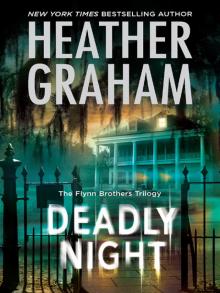 Deadly Night
Deadly Night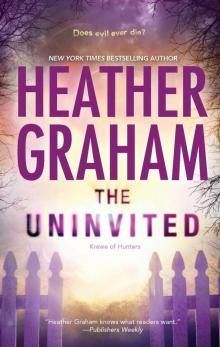 The Uninvited
The Uninvited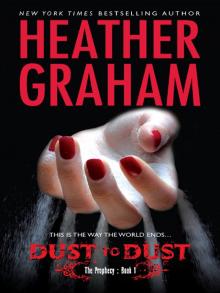 Dust to Dust
Dust to Dust Heart of Evil
Heart of Evil A Perfect Obsession
A Perfect Obsession The Keepers
The Keepers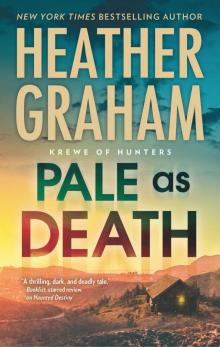 Pale as Death
Pale as Death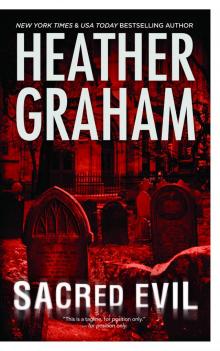 Phantom Evil
Phantom Evil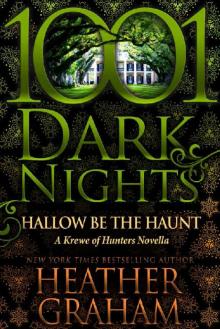 Hallow Be the Haunt
Hallow Be the Haunt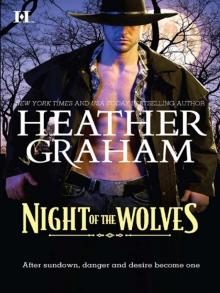 Night of the Wolves
Night of the Wolves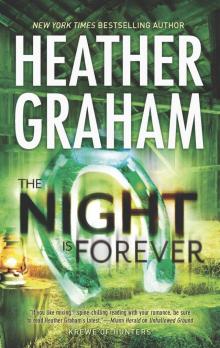 The Night Is Forever
The Night Is Forever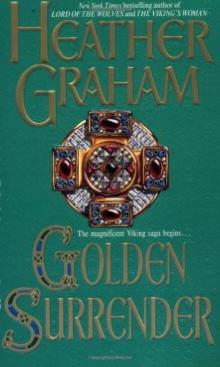 Golden Surrender
Golden Surrender Kiss of Darkness
Kiss of Darkness Beneath a Blood Red Moon
Beneath a Blood Red Moon A Dangerous Game
A Dangerous Game Ghost Shadow
Ghost Shadow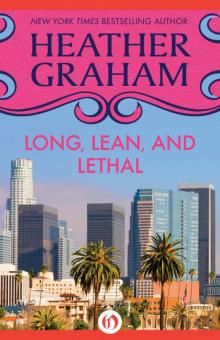 Long, Lean, and Lethal
Long, Lean, and Lethal Fade to Black
Fade to Black The Rising
The Rising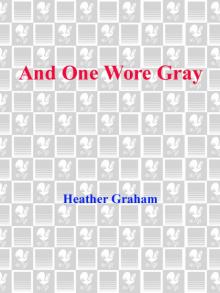 And One Wore Gray
And One Wore Gray Rebel
Rebel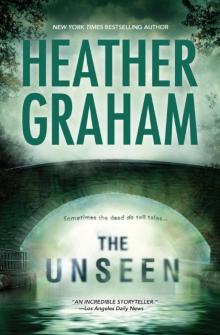 The Unseen
The Unseen The Night Is Watching
The Night Is Watching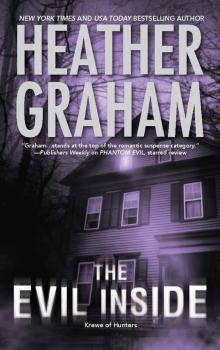 The Evil Inside
The Evil Inside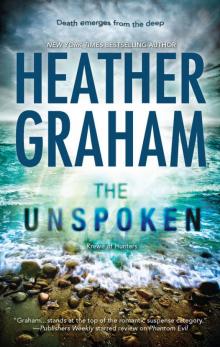 The Unspoken
The Unspoken The Night Is Alive
The Night Is Alive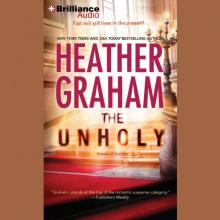 The Unholy
The Unholy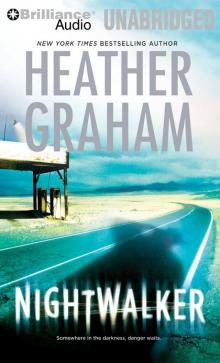 Nightwalker
Nightwalker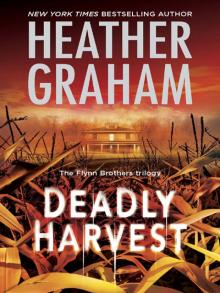 Deadly Harvest
Deadly Harvest An Angel for Christmas
An Angel for Christmas A Pirate's Pleasure
A Pirate's Pleasure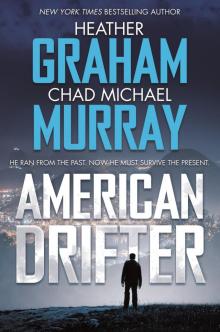 American Drifter
American Drifter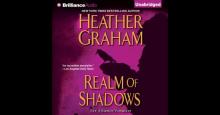 Realm of Shadows
Realm of Shadows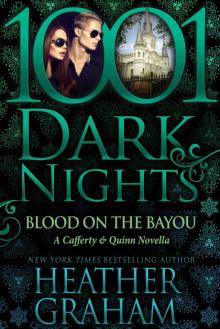 Blood on the Bayou
Blood on the Bayou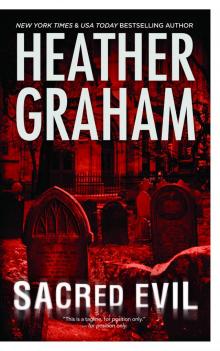 Sacred Evil
Sacred Evil Dying to Have Her
Dying to Have Her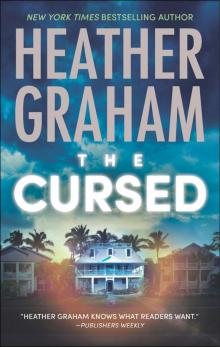 The Cursed
The Cursed Captive
Captive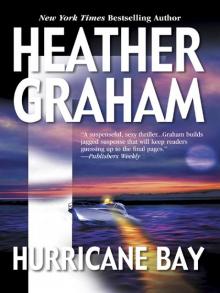 Hurricane Bay
Hurricane Bay Drop Dead Gorgeous
Drop Dead Gorgeous Ghost Memories
Ghost Memories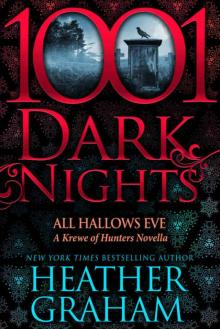 All Hallows Eve
All Hallows Eve Dying Breath
Dying Breath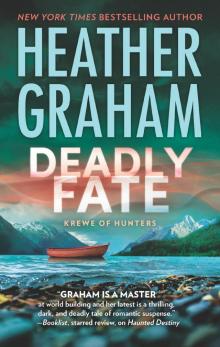 Deadly Fate
Deadly Fate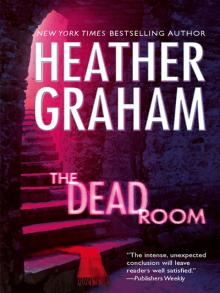 The Dead Room
The Dead Room Lord of the Wolves
Lord of the Wolves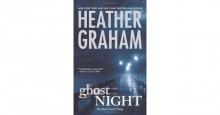 Ghost Night
Ghost Night Ghost Walk
Ghost Walk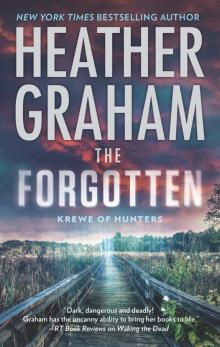 The Forgotten
The Forgotten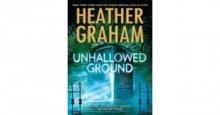 Unhallowed Ground
Unhallowed Ground One Wore Blue
One Wore Blue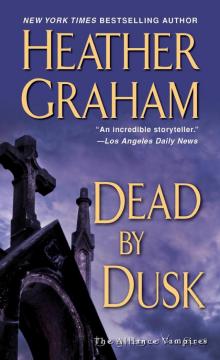 Dead By Dusk
Dead By Dusk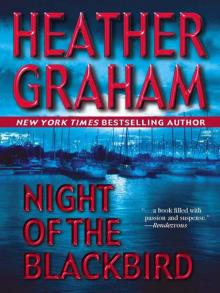 Night of the Blackbird
Night of the Blackbird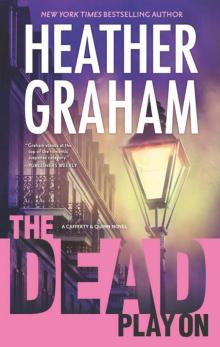 The Dead Play On
The Dead Play On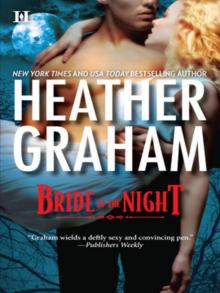 Bride of the Night
Bride of the Night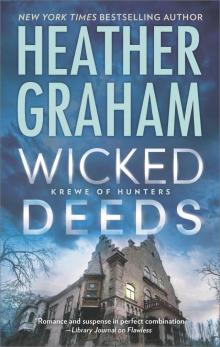 Wicked Deeds
Wicked Deeds The Forbidden
The Forbidden Triumph
Triumph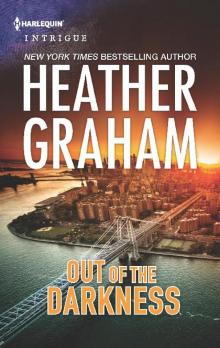 Out of the Darkness
Out of the Darkness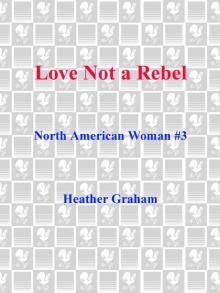 Love Not a Rebel
Love Not a Rebel The Last Noel
The Last Noel Tall, Dark, and Deadly
Tall, Dark, and Deadly The Death Dealer
The Death Dealer Dead on the Dance Floor
Dead on the Dance Floor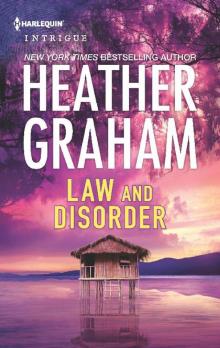 Law and Disorder
Law and Disorder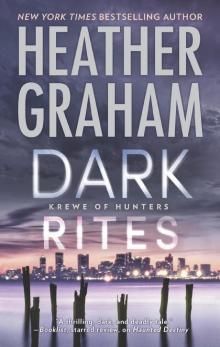 Dark Rites
Dark Rites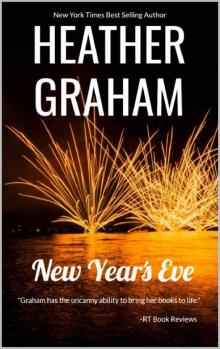 New Year's Eve
New Year's Eve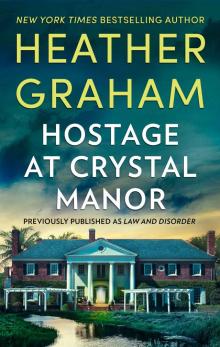 Hostage At Crystal Manor
Hostage At Crystal Manor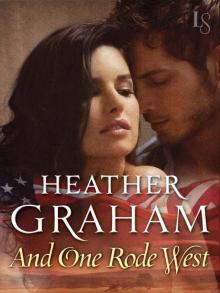 And One Rode West
And One Rode West Home in Time for Christmas
Home in Time for Christmas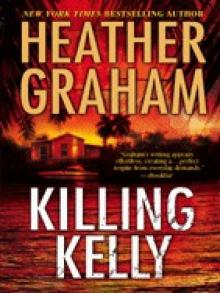 Killing Kelly
Killing Kelly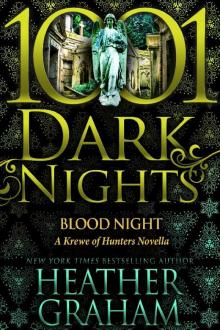 Blood Night
Blood Night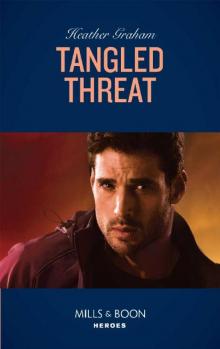 Tangled Threat (Mills & Boon Heroes)
Tangled Threat (Mills & Boon Heroes)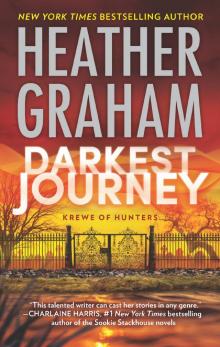 Darkest Journey
Darkest Journey Glory
Glory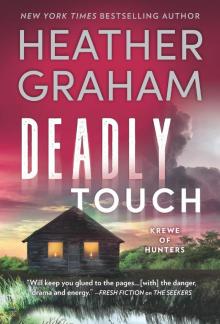 Deadly Touch
Deadly Touch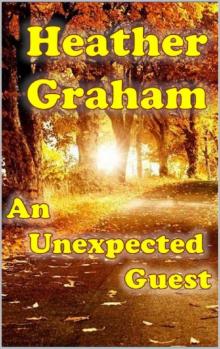 An Unexpected Guest
An Unexpected Guest Night of the Vampires
Night of the Vampires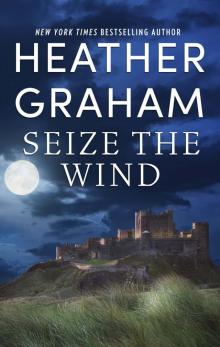 Seize the Wind
Seize the Wind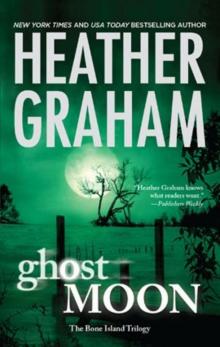 Ghost Moon
Ghost Moon The Vision
The Vision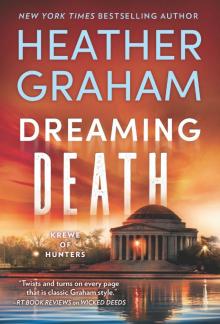 Dreaming Death
Dreaming Death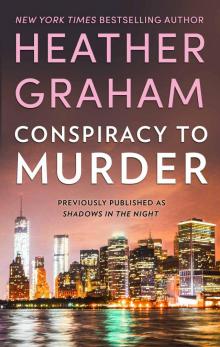 Conspiracy to Murder
Conspiracy to Murder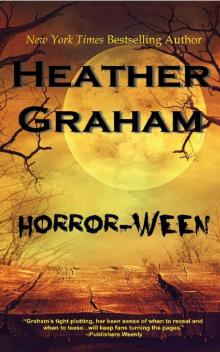 Horror-Ween (Krewe of Hunters)
Horror-Ween (Krewe of Hunters)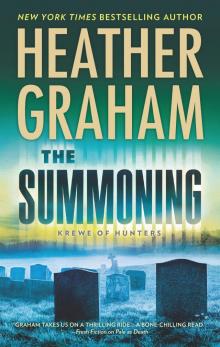 The Summoning
The Summoning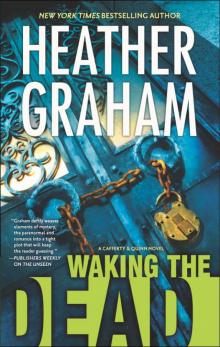 Waking the Dead
Waking the Dead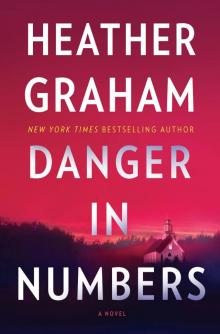 Danger in Numbers
Danger in Numbers The Hidden
The Hidden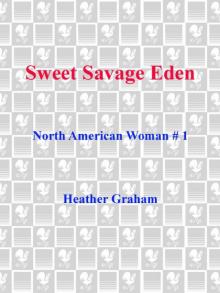 Sweet Savage Eden
Sweet Savage Eden Tangled Threat ; Suspicious
Tangled Threat ; Suspicious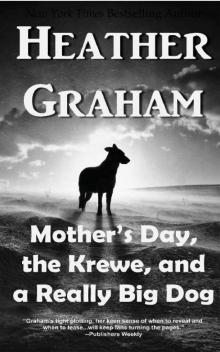 Mother's Day, the Krewe, and a Really Big Dog
Mother's Day, the Krewe, and a Really Big Dog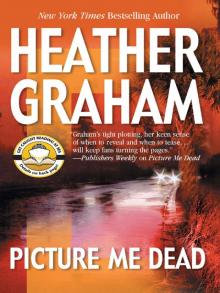 Picture Me Dead
Picture Me Dead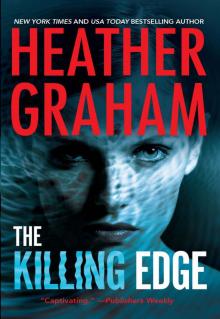 The Killing Edge
The Killing Edge St. Patrick's Day
St. Patrick's Day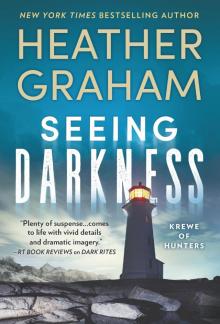 Seeing Darkness
Seeing Darkness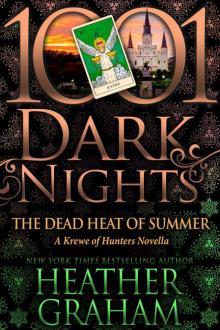 The Dead Heat of Summer: A Krewe of Hunters Novella
The Dead Heat of Summer: A Krewe of Hunters Novella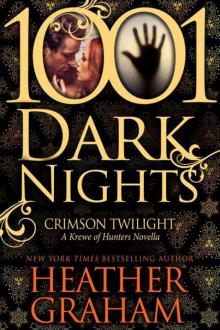 Crimson Twilight
Crimson Twilight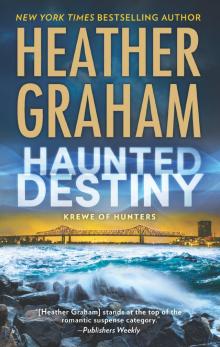 Haunted Destiny
Haunted Destiny Devil's Mistress
Devil's Mistress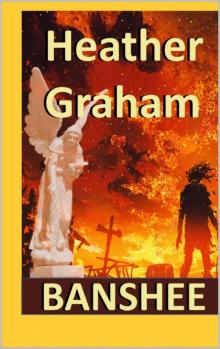 Banshee
Banshee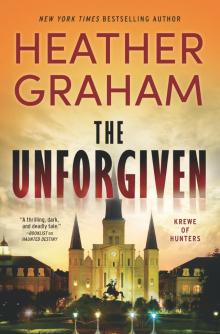 The Unforgiven
The Unforgiven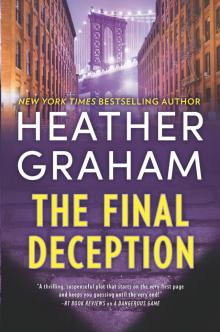 The Final Deception
The Final Deception A Horribly Haunted Halloween
A Horribly Haunted Halloween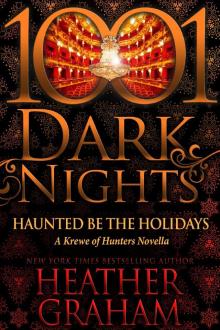 Haunted Be the Holidays
Haunted Be the Holidays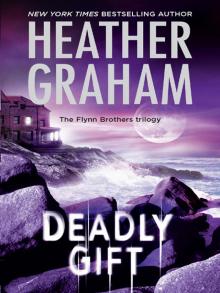 Deadly Gift
Deadly Gift Easter, the Krewe and Another Large White Rabbit
Easter, the Krewe and Another Large White Rabbit Haunted
Haunted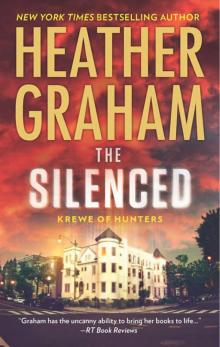 The Silenced
The Silenced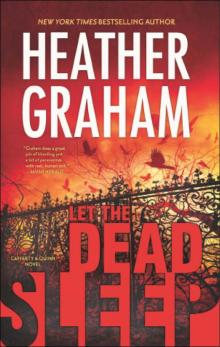 Let the Dead Sleep
Let the Dead Sleep Christmas, the Krewe, and Kenneth
Christmas, the Krewe, and Kenneth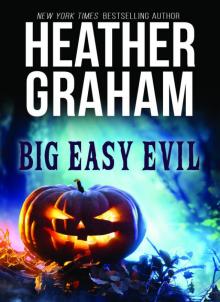 Big Easy Evil
Big Easy Evil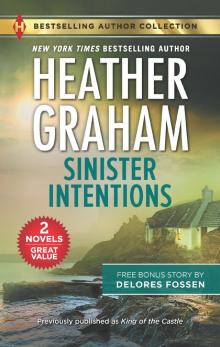 Sinister Intentions & Confiscated Conception
Sinister Intentions & Confiscated Conception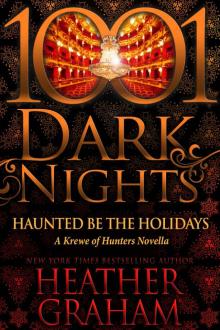 Haunted Be the Holidays: A Krewe of Hunters Novella
Haunted Be the Holidays: A Krewe of Hunters Novella Blood Red
Blood Red A Perilous Eden
A Perilous Eden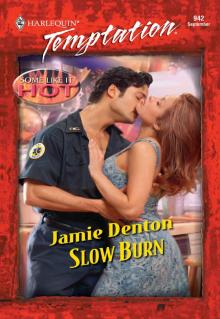 Slow Burn
Slow Burn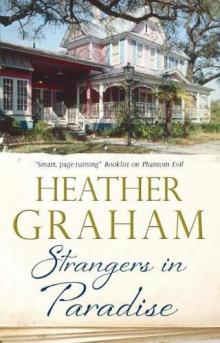 Strangers In Paradise
Strangers In Paradise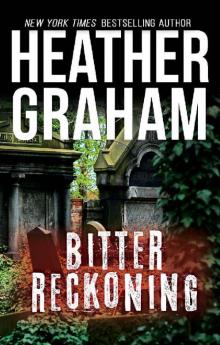 Bitter Reckoning
Bitter Reckoning Krewe of Hunters, Volume 1: Phantom Evil ; Heart of Evil ; Sacred Evil ; The Evil Inside
Krewe of Hunters, Volume 1: Phantom Evil ; Heart of Evil ; Sacred Evil ; The Evil Inside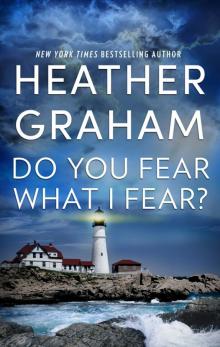 Do You Fear What I Fear?
Do You Fear What I Fear?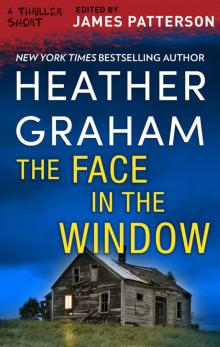 The Face in the Window
The Face in the Window Krewe of Hunters, Volume 3: The Night Is WatchingThe Night Is AliveThe Night Is Forever
Krewe of Hunters, Volume 3: The Night Is WatchingThe Night Is AliveThe Night Is Forever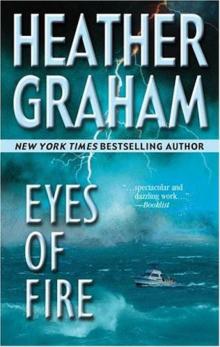 Eyes of Fire
Eyes of Fire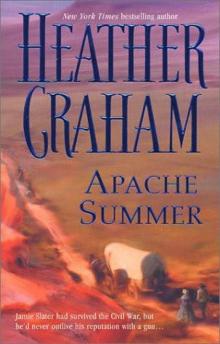 Apache Summer sb-3
Apache Summer sb-3 Sensuous Angel
Sensuous Angel In the Dark
In the Dark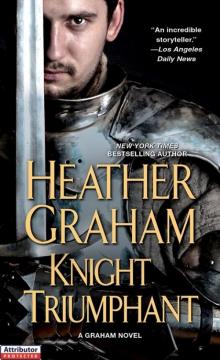 Knight Triumphant
Knight Triumphant Hours to Cherish
Hours to Cherish Tender Deception
Tender Deception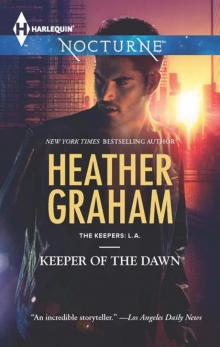 Keeper of the Dawn tkl-4
Keeper of the Dawn tkl-4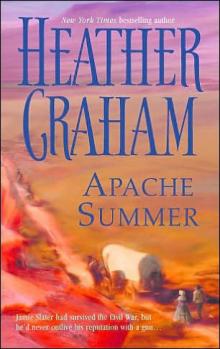 Apache Summer
Apache Summer Between Roc and a Hard Place
Between Roc and a Hard Place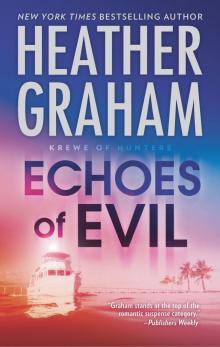 Echoes of Evil
Echoes of Evil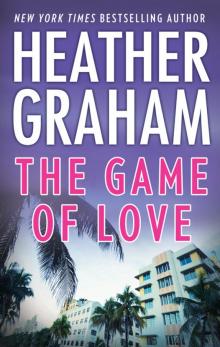 The Game of Love
The Game of Love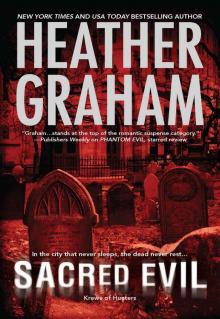 Sacred Evil (Krewe of Hunters)
Sacred Evil (Krewe of Hunters) Bougainvillea
Bougainvillea Tender Taming
Tender Taming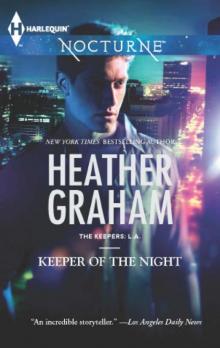 Keeper of the Night (The Keepers: L.A.)
Keeper of the Night (The Keepers: L.A.)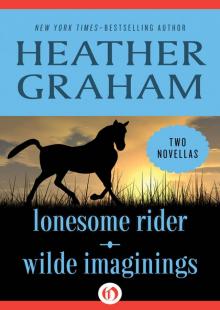 Lonesome Rider and Wilde Imaginings
Lonesome Rider and Wilde Imaginings Lucia in Love
Lucia in Love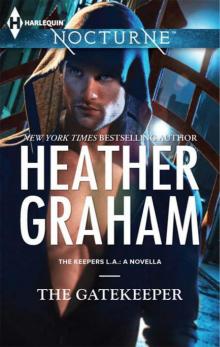 The Gatekeeper
The Gatekeeper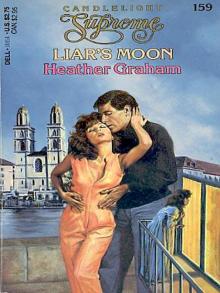 Liar's Moon
Liar's Moon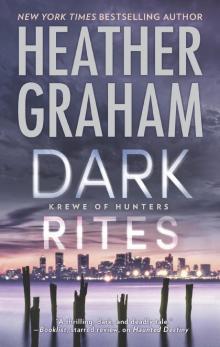 Dark Rites--A Paranormal Romance Novel
Dark Rites--A Paranormal Romance Novel A Season for Love
A Season for Love Krewe of Hunters, Volume 6: Haunted Destiny ; Deadly Fate ; Darkest Journey
Krewe of Hunters, Volume 6: Haunted Destiny ; Deadly Fate ; Darkest Journey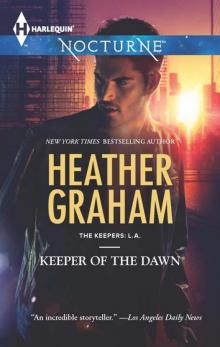 Keeper of the Dawn (The Keepers: L.A.)
Keeper of the Dawn (The Keepers: L.A.)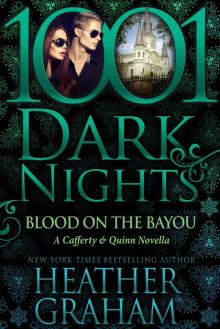 Blood on the Bayou: A Cafferty & Quinn Novella
Blood on the Bayou: A Cafferty & Quinn Novella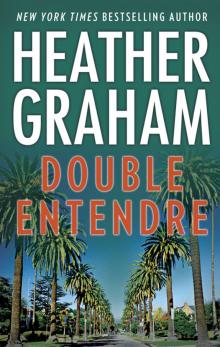 Double Entendre
Double Entendre A Perfect Obsession--A Novel of Romantic Suspense
A Perfect Obsession--A Novel of Romantic Suspense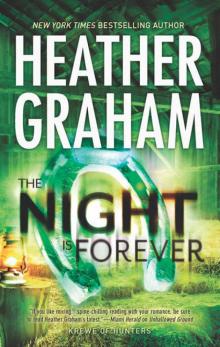 The Night Is Forever koh-11
The Night Is Forever koh-11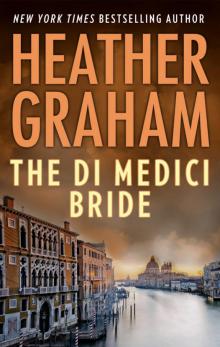 The Di Medici Bride
The Di Medici Bride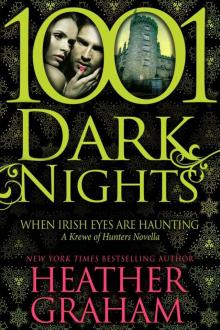 When Irish Eyes Are Haunting: A Krewe of Hunters Novella
When Irish Eyes Are Haunting: A Krewe of Hunters Novella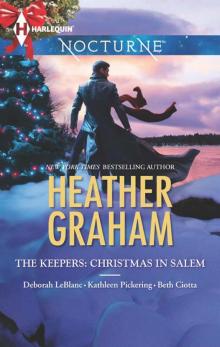 The Keepers: Christmas in Salem: Do You Fear What I Fear?The Fright Before ChristmasUnholy NightStalking in a Winter Wonderland (Harlequin Nocturne)
The Keepers: Christmas in Salem: Do You Fear What I Fear?The Fright Before ChristmasUnholy NightStalking in a Winter Wonderland (Harlequin Nocturne)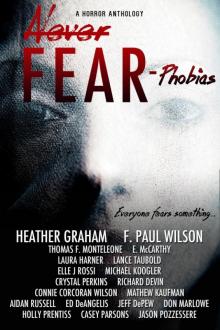 Never Fear
Never Fear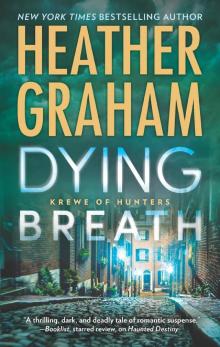 Dying Breath--A Heart-Stopping Novel of Paranormal Romantic Suspense
Dying Breath--A Heart-Stopping Novel of Paranormal Romantic Suspense If Looks Could Kill
If Looks Could Kill This Rough Magic
This Rough Magic Heather Graham's Christmas Treasures
Heather Graham's Christmas Treasures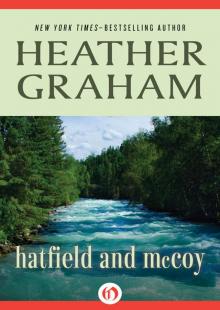 Hatfield and McCoy
Hatfield and McCoy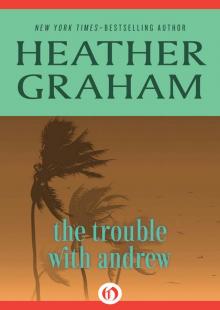 The Trouble with Andrew
The Trouble with Andrew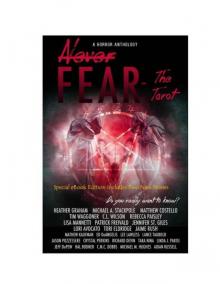 Never Fear - The Tarot: Do You Really Want To Know?
Never Fear - The Tarot: Do You Really Want To Know?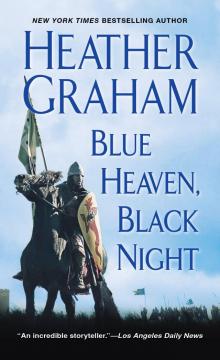 Blue Heaven, Black Night
Blue Heaven, Black Night Forbidden Fire
Forbidden Fire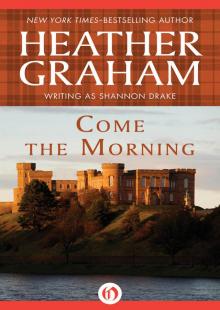 Come the Morning
Come the Morning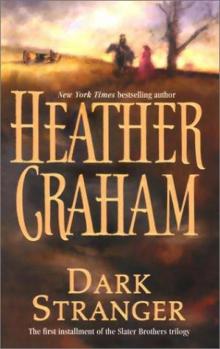 Dark Stranger sb-4
Dark Stranger sb-4 Lie Down in Roses
Lie Down in Roses Red Midnight
Red Midnight Krewe of Hunters Series, Volume 5
Krewe of Hunters Series, Volume 5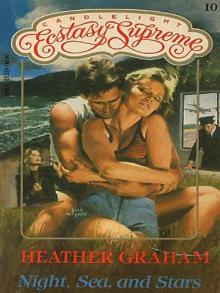 Night, Sea, And Stars
Night, Sea, And Stars Snowfire
Snowfire Quiet Walks the Tiger
Quiet Walks the Tiger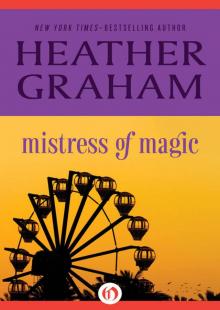 Mistress of Magic
Mistress of Magic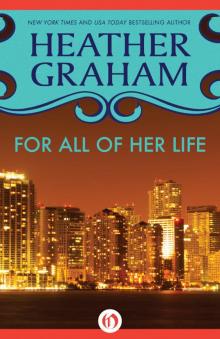 For All of Her Life
For All of Her Life Runaway
Runaway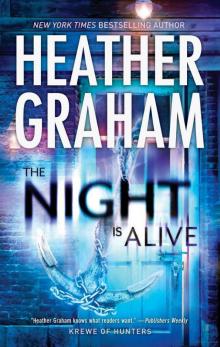 The Night Is Alive koh-10
The Night Is Alive koh-10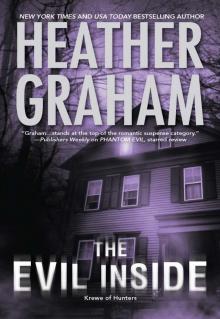 The Evil Inside (Krewe of Hunters)
The Evil Inside (Krewe of Hunters)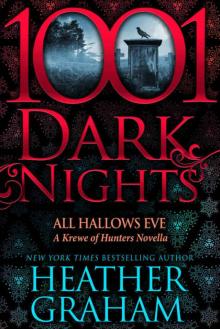 All Hallows Eve: A Krewe of Hunters Novella (1001 Dark Nights)
All Hallows Eve: A Krewe of Hunters Novella (1001 Dark Nights) Tomorrow the Glory
Tomorrow the Glory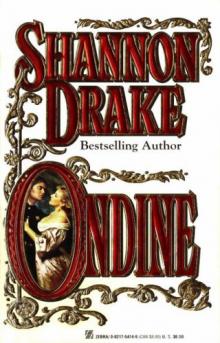 Ondine
Ondine Angel of Mercy & Standoff at Mustang Ridge
Angel of Mercy & Standoff at Mustang Ridge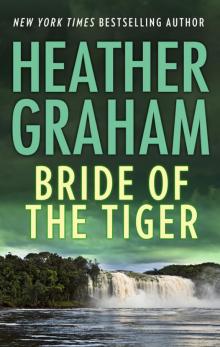 Bride of the Tiger
Bride of the Tiger When Next We Love
When Next We Love Heather Graham Krewe of Hunters Series, Volume 4
Heather Graham Krewe of Hunters Series, Volume 4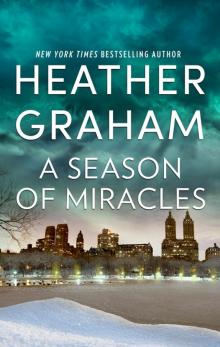 A Season of Miracles
A Season of Miracles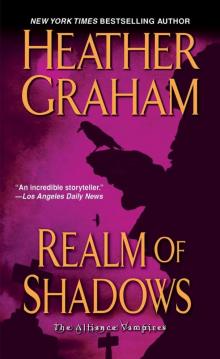 Realm of Shadows (Vampire Alliance)
Realm of Shadows (Vampire Alliance)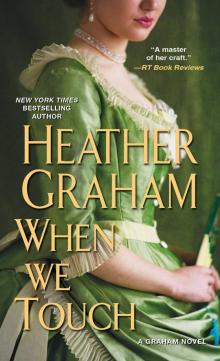 When We Touch
When We Touch Serena's Magic
Serena's Magic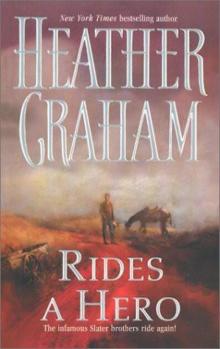 Rides a Hero sb-2
Rides a Hero sb-2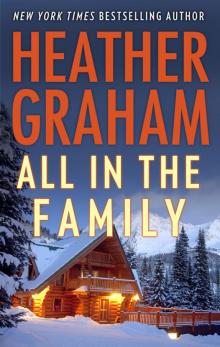 All in the Family
All in the Family Handful of Dreams
Handful of Dreams A Stranger in the Hamptons
A Stranger in the Hamptons Krewe of Hunters, Volume 2: The Unseen ; The Unholy ; The Unspoken ; The Uninvited
Krewe of Hunters, Volume 2: The Unseen ; The Unholy ; The Unspoken ; The Uninvited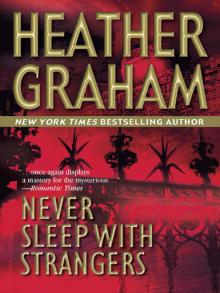 Never Sleep With Strangers
Never Sleep With Strangers Eden's Spell
Eden's Spell A Magical Christmas
A Magical Christmas Forever My Love
Forever My Love King of the Castle
King of the Castle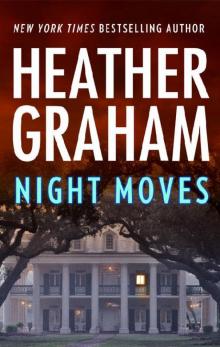 Night Moves (60th Anniversary)
Night Moves (60th Anniversary) The Island
The Island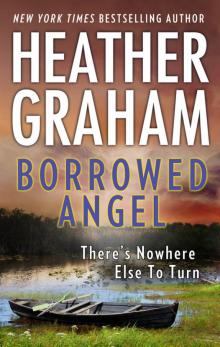 Borrowed Angel
Borrowed Angel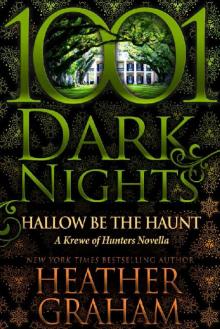 Hallow Be the Haunt: A Krewe of Hunters Novella
Hallow Be the Haunt: A Krewe of Hunters Novella Why I Love New Orleans
Why I Love New Orleans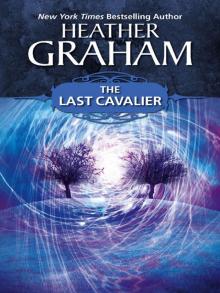 The Last Cavalier
The Last Cavalier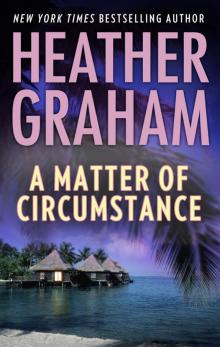 A Matter of Circumstance
A Matter of Circumstance Heather Graham's Haunted Treasures
Heather Graham's Haunted Treasures Tempestuous Eden
Tempestuous Eden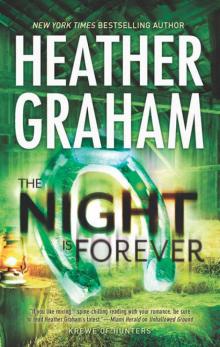 Krewe 11 - The Night Is Forever
Krewe 11 - The Night Is Forever